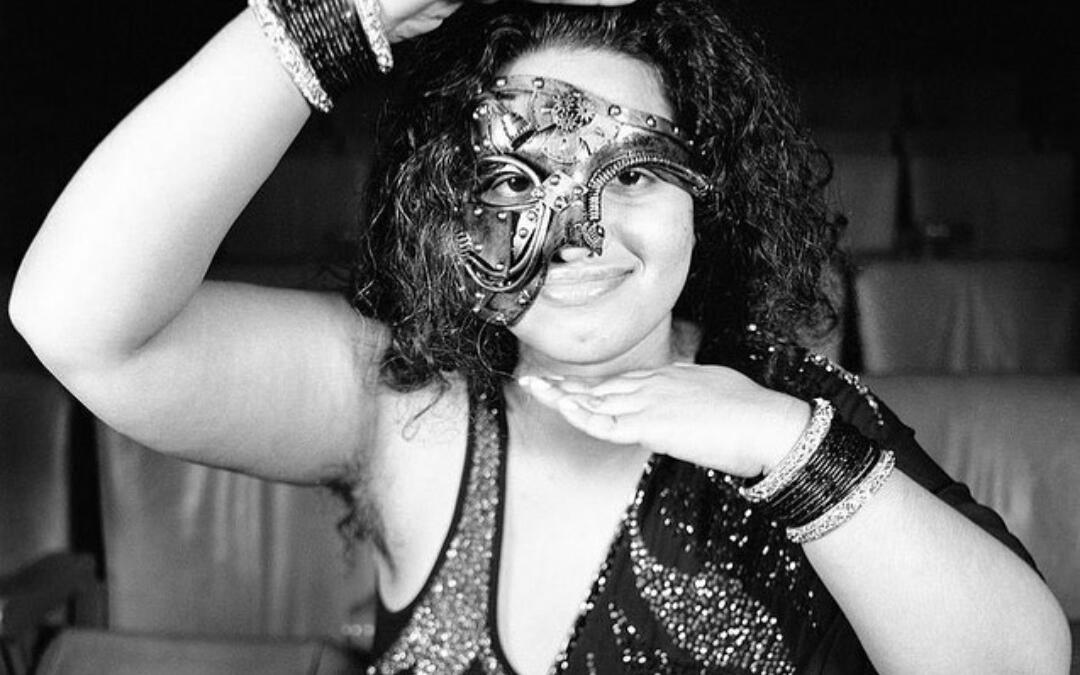In 2017 Raani Begum, a South Asian migrant, was living in Kensington, broke and in danger of being evicted. It wasn’t that they weren’t working, they actually had multiple jobs- on opposite sides of the city. They were reliant on public transit and the constant commuting was taking a serious toll. Raani (who uses she/her/they/them/he/him pronouns, but we’ll stick to she/her for this piece, at her request) was starting to get really sick. “My options for feeding myself and my family had dried up by then.”
“I told myself I would go into sex work as a last resort and at some point, I decided that was my last resort,” she says. It wasn’t a light decision, and she was “convinced something terrible was going to happen.”
“I didn’t know what I was doing. I think there’s a lot of negative messaging around sex work that’s really frightening. I think people who are anti-sex work are really loud- on the internet and in the general public,” she says, adding that her safety plan was pieced together from random things collected on the internet, including Tumblr (which has since removed such content). “I was really terrified; I was looking for community.”
Then she stumbled into Project: Safe, a mutual aid organization whose mission focuses on helping women, queer, and trans people involved in the street economies of Philly, using a harm reduction model. Harm reduction is about “meeting people where they’re at,” and helping make safer choices around the risks of sex and drugs, rather than demanding abstinence. Raani attended one of their drop-in meetings for sex workers and sat quietly, just listening.
The meetings provided stability, support, and resources, encouraged workers to screen their clients and taught them how to set boundaries. While FOSTA-SESTA (a bill that purported to combat sex trafficking but actually exacerbated the problem) has made it much harder for many internet-enabled sex workers to vet their customers, for those working the outdoor area referred to as “The Stroll” in Kensington, the options are more 1.0. “There are a lot of gut checks,” Raani says, and a lot of workers teaching each other.
The organization also provides a Bad Date Sheet, a resource that allows for anonymous tips and is entirely disconnected from police. Workers can share information on clients who refused to pay, wasted time, stole property, were violent, or otherwise would not be recommended. There is also sharing of information on the police in the area, including which ones routinely harass sex workers, ask for dates, or are prone to violence.
Perhaps the most vital element of becoming involved in Project Safe for Raani was how they help unlearn stigma. “This community really saved my life,” she says. “It helped me figure out my own boundaries.”
While Project Safe focuses on the Kensington area, the group is connected with folks doing similar work in Philly, as well as throughout the world. These are bands of people fighting for decriminalization, and providing education, resources and mutual aid, including the sex worker relief fund that raised $75,000 and helped many Philly-based workers survive during COVID from donations.
Though the anti-sex work movement would refer to this sharing of resources as “the pimping lobby,” Raani found that this affiliation of workers gave them confidence to ask questions and , see what was effective for people in other places. “Depending on how courageous I felt, I could reach out to them for tips or opinions, and I guess slowly I build a sort of friendship and community. It helped me change the ways that I worked and helped me build my community support.”
Today, Raani is actively involved as a community organizer with Project Safe and Red Umbrella Alliance (another group that advocates for erotic laborers in Philly), as well as the Heaux History Project, a “multimedia archival project exploring Black, Brown, & Indigenous erotic labor and sex worker histories.” She also writes about “culture, labor and State suppression from a gendered lens” and want to share their experiences as op-eds in major publications, the way anti-sex work forces routinely get to do.
What kind of opinions do they want to share? The need for decriminalization of sex work and drug use, for one thing. Legalization would mean sex work is no longer illegal, but it would involve a bunch of regulations and oversight by the government. Decriminalization would mean sex work is no longer illegal and police do not have any interaction with the sex work industry.
“We think about the harms of police in our neighborhoods,” she says, adding, “criminalizing people creates a lot of further barriers in their lives. It prevents them from being housed from attaining education, from getting any other kind of jobs they want. It separates families.” Having to be hassled by police also is just a huge waste of time and resources, they say. “It interrupts your day and your life in these incredibly big waves that are not quantifiable.”
Another major concern of the movement is combatting stigma, which she says will go a long way in reducing violence against sex workers, something we should all desire. The judgmental views that many hold against people in the industry– whether perceiving sex workers as sinful or as victims- contributes to the ways in which institutional (coming from official authorities like police) and interpersonal (civilian against civilian) violence happen, he says.
“If we think somebody should get arrested, if we think somebody deserves police violence, carceral violence or any type of surveillance from the state,” she says, it’s a judgement from the community that “‘those people’ are disposable.’”
To head towards these goals, Project Safe organizes sex workers, engaging people one on-on-one or in small group settings on the street, and holding weekly meetings in a space where judgment is reserved. “A lot of it is pushing back against internalized stigma. It can shift people’s perspectives and how they interact with community members and clients and helps provide for more autonomy,” she says. They also distribute much needed supplies, everything from safer sex products to weather-appropriate clothing, travel-size toiletries, and pepper spray.
Now, years later, Raani’s life is financially stable, and she attributes it to sex work. Like many Philadelphians, she still lives paycheck to paycheck, but is no longer at risk of eviction and has free time to spend doing what she loves. “I just like spending time with people. I’m really grateful that the way I built my financial life lets me enjoy time with the people I love: with my partner, my family, my friends.”
“In doing so I end up socially watching a lot of TV,” he giggles, citing Harley Quinn on HBO Max as a current obsession. “It’s really great to see a character that beats people up with baseball bats, that makes me so happy. And also someone who can control plants, Poison Ivy is such an amazing character.” He also has time for his own plant hobbies now. “I am really into house plants. During the pandemic- like I lot of other people- I got really into house plants and I started to learn about terrarium building. It’s an amazing science, plants are amazing.”
To support the endeavors of Project Safe and Red Umbrella Alliance, head here where they are always collecting donations. Keep an eye on their social media for other calls for assistance.





